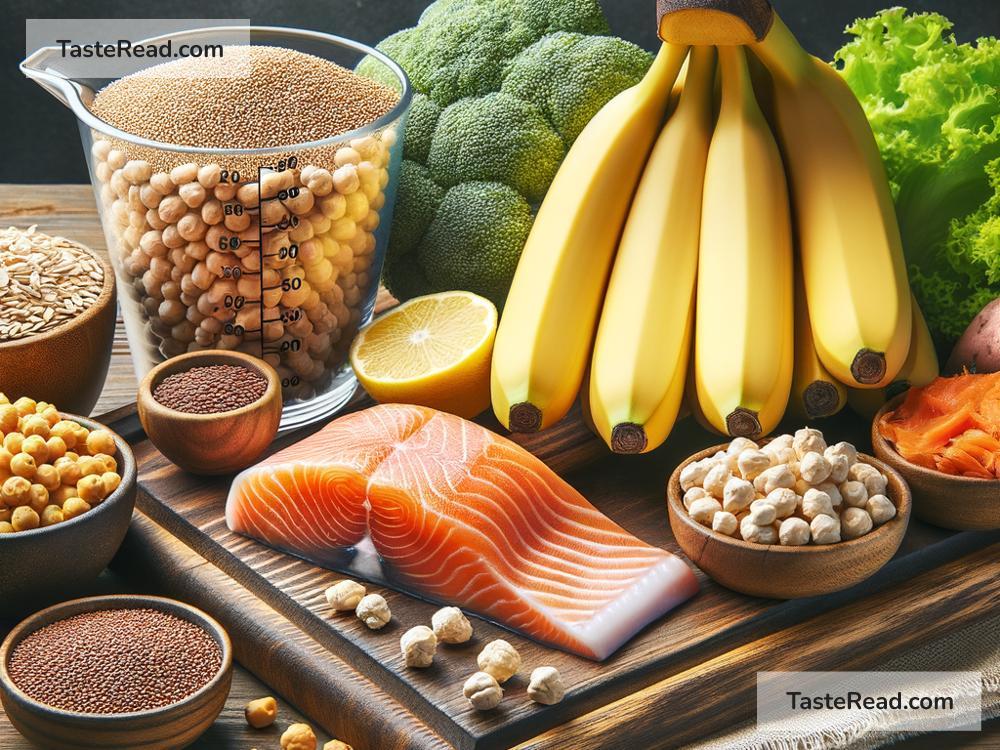The Role of Vitamin B6 in Metabolic Health
When it comes to keeping our bodies healthy, vitamins play a big part. Among all the essential vitamins, Vitamin B6 stands out because it helps with many important functions, especially in our metabolism. In this article, we’ll explore what Vitamin B6 does, why it’s important, and how it supports your overall health—all in simple language!
What Is Vitamin B6?
Vitamin B6, also known as pyridoxine, is one of the eight B vitamins that are vital for your body. Like other B vitamins, Vitamin B6 helps your body convert food into energy. It is water-soluble, meaning it is not stored in the body for long and needs to be replenished regularly through food or supplements.
This vitamin has a hand in multiple processes, including brain development, immune system function, and hormone regulation. However, one of its most vital roles is assisting with our metabolism. Without it, our body would struggle to utilize the nutrients we consume properly.
What Is Metabolism?
To understand the role of Vitamin B6 in metabolic health, it’s important to know what metabolism means. Metabolism is the process your body uses to convert food into energy. It also involves breaking down proteins, fats, and carbohydrates to build and repair tissues, power your cells, and keep everything running smoothly.
Think of metabolism as the engine that keeps your body going. It happens in every cell and is responsible for fueling everything from breathing and thinking to physical activities like walking and exercising.
How Does Vitamin B6 Help with Metabolism?
Vitamin B6 is like a tool that helps enzymes (special proteins) function properly during metabolic processes. Enzymes are responsible for speeding up chemical reactions in your body and ensuring everything works efficiently.
Here are the key ways Vitamin B6 supports metabolism:
-
Breaking Down Proteins: When you eat foods that contain protein, your body needs Vitamin B6 to break them down into amino acids—the building blocks of protein. Your body then uses amino acids to repair muscles, make hormones, and support cell growth.
-
Using Fats and Carbohydrates for Energy: Vitamin B6 helps your body process fats and carbohydrates. It ensures the nutrients are converted into energy that your body can use to power daily activities.
-
Creating Neurotransmitters: Neurotransmitters are chemicals in your brain that help send messages between nerve cells. Vitamin B6 is involved in producing neurotransmitters like serotonin and dopamine, which play a role in mood regulation, mental clarity, and motivation. A healthy metabolism also depends on well-functioning nerve systems.
-
Helping with Hemoglobin Production: Hemoglobin is a protein in red blood cells that carries oxygen throughout your body. Vitamin B6 helps produce hemoglobin, ensuring that your cells get enough oxygen to function and metabolize nutrients properly.
-
Regulating Hormones: Vitamin B6 plays a key role in hormone balance, especially for women. Hormones influence energy levels, metabolism, and overall health. If your hormones are out of balance, it can slow your metabolism and make you feel tired or sluggish.
The Impact of Vitamin B6 Deficiency
If your body doesn’t get enough Vitamin B6, it can affect your metabolism and overall health. Symptoms of Vitamin B6 deficiency include fatigue, irritability, depression, confusion, weakened immunity, and even anemia (low red blood cell count). Since Vitamin B6 is involved in so many important processes, a deficiency can lead to a range of health problems.
Certain groups are at higher risk for deficiency, including people with kidney disease, alcohol dependency, or autoimmune disorders. Pregnant women also need extra Vitamin B6 to support the baby’s development and to help with morning sickness.
How to Get Enough Vitamin B6?
The good news is that Vitamin B6 is found in lots of everyday foods, so most people can get enough just by eating a balanced diet. Here are some excellent sources of Vitamin B6:
- Meat and Poultry: Chicken, turkey, and beef are good sources.
- Fish: Salmon and tuna are packed with Vitamin B6.
- Vegetables: Potatoes, spinach, and carrots are rich in Vitamin B6.
- Fruits: Bananas, avocados, and dried fruits like prunes provide a healthy dose.
- Fortified Foods: Breakfast cereals and nutritional bars often have added Vitamin B6.
- Nuts and Seeds: Sunflower seeds and walnuts contain Vitamin B6.
Most adults need about 1.3 to 2 mg of Vitamin B6 per day. However, it’s always wise to talk to a doctor or nutritionist if you’re unsure about your dietary needs.
Should You Take Supplements?
Most people get enough Vitamin B6 from food, but supplements can be helpful in certain situations. For example, pregnant women or individuals with medical conditions like kidney disease might need additional Vitamin B6. It’s important not to take too much, though, as excessive amounts can cause nerve damage over time.
The Bottom Line
Vitamin B6 is a small but mighty nutrient that plays a big role in metabolic health. It helps your body turn food into energy, supports brain function, regulates hormones, and keeps your immune system strong. By eating a variety of Vitamin B6-rich foods, you can ensure that your body has the fuel it needs to function at its best.
Taking care of your metabolism is essential for feeling energized and staying healthy—and Vitamin B6 is one of the key ingredients to make it all happen. So, next time you enjoy a meal, remember that this powerful vitamin is working behind the scenes to keep you going!


